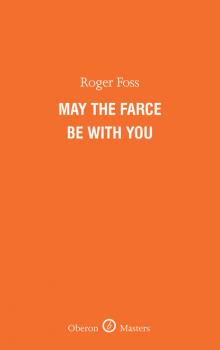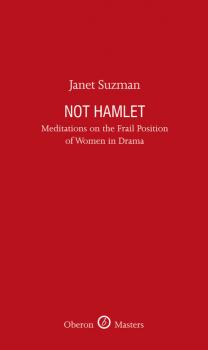MREADZ.COM - много разных книг на любой вкус
Скачивание или чтение онлайн электронных книг.Bacchai
Dionysos, the God of wine and theatre has returned to his native land to take revenge on the puritanical Pentheus who refuses to recognise him of his rites. Remorselessly, savagely and with black humour, the God drives Pentheus and all the city to their shocking fate. Limelight after decades of anonymity. This version was specially commissioned by the National Theatre for a production in May 2002, directed by Sir Peter Hall and scored by Sir Harrison Birtwhistle.
When We Are Married
In the heart of Northern England, three respectable couples, married on the same day, at the same church, and by the same vicar, join to celebrate 25 years of blissful matrimony. Or so they think… The happy celebrations are brought to a sudden halt by a shocking revelation – these pillars of the community aren’t quite as respectably married as they thought they were. As the home truths fly like confetti and conjugal rites turn to farcical fights, an evening of sparkling comic mayhem erupts. With a photographer from the local paper due to arrive any second, a missing housekeeper and a doorbell that wont stop ringing, can the three couples keep a lid on their embarrassing secret? Penned in 1938, this is a classic comedy that is a blessed union of laughs and surprises.
A Christmas Carol
‘Oh, but he was a squeezing, wrenching, scraping, grasping kind of a Scrooge; a clutching, covetous old sinner…’Using only Charles Dickens' extraordinary words and a chameleon ensemble of eight actors, Neil Bartlett's A Christmas Carol is a bold theatrical reimagining of a classic Christmas story. This stage version was adapted for the festive season of 2002-3, and played to full houses and critical acclaim at both the Lyric Hammersmith, London, and the Citizens' Theatre, Glasgow.‘Gets right to the frozen heart of Dickens' classic Christmas tale…one of those rare festive offerings for which no adult will need the excuse of a child in tow…’ – Guardian
Carrie's War
When the Second World War air raids threaten their safety in the city, Carrie and her brother Nick are evacuated to a small Welsh village. But the countryside has dangers and adventures of its own – and a group of characters who will change Carrie's life forever. There's mean Mr Evans, who won't let the children eat meat; but there’s also kind Auntie Lou. There's brilliant young Albert Sandwich, another evacuee, and Mr Johnny, who speaks a language all of his own. Then there's Hepzibah Green, the witch at Druid’s Grove who makes perfect mince pies, and the ancient skull with its terrifying curse…For adults and young people aged eight and over.Emma Reeves has created a stunning stage adaptation of Nina Bawden’s much loved classic account of life as an evacuee in the 1940s, which opened at the Lillian Bayliss Theatre in November 2006. This edition includes teachers' notes and activities for classes based on the play.‘I doubt… anything will beat this traditional page-to-stage adaptation for ceaselessly involving telling of a cracking story’ – Evening Standard ‘Irresistible’ – Sunday Telegraph , Critic's Choice‘Richly entertaining. Funny & deeply rewarding’ – Daily Telegraph , Critic’s Choice‘Consistently excellent’ – The Times , Critic’s Choice‘Dramatic, imaginative and polished’ – Evening Standard , Critic’s Choice‘Excellent. Truly refreshing story-telling’ – Daily Mail
Autobiographer
Combining a lyrical text, immersive staging and an enigmatic and compelling performance style, Autobiographer draws us into the unravelling mind of its central character, Flora. Voiced by multiple performers, Flora reveals a curious and evocative portrait of a life refracted through the lens of dementia, layered from fragments of stories and pulses of memory. This tender, poetic and thrilling performance features a cast of four and a bold and electrifying score of voice and sound.' Autobiographer successfully presents us with one reality of dementia and our attitudes to it… deeply poetical' – Exeunt Magazine 'Wilson uses an unobtrusive vocabulary to say something quietly surprising. It is the beauty of telling stories, even when there is no narrative. And it is the importance of people connecting, especially if we don’t know who we are' 4 stars – Spoonfed 'This show is a long poem, shakily and delicately sketched in our minds by four women, who in similar clothing represent the life of one woman… A clear amount of loving research has gone into this work, which considers the terrible nature of dementia without making it overly sentimental' 4 stars – The Public Reviews ‘Heartfelt and lyrical’ – Guardian ‘ Autobiographer is a work of vivid poetry’ – Time Out London
I Am The Wind
The wind gathers, rising up suddenly.Two men on a fragile boat, a trip to sea – a few drinks, a bite to eat – when one of them decides to push on to the open ocean. Suddenly there they are: among the distant islands, the threatening fog and gathering swell of the sea, bound together on an odyssey into the unknown.Jon Fosse’s work includes novels, poetry, essays and books for children. He is one of the most produced playwrights in Europe and his plays have been translated into forty languages. Oberon Books publishes Nightsongs and The Girl on the Sofa , and his other plays in the following collections: Plays One, Plays Two, Plays Three, Plays Four and Plays Five . Plays Six is forthcoming in 2013.Oberon Books also publishes The Luminous Darkness: The Theatre of Jon Fosse by Leif Zern (translated by Ann Henning-Jocelyn).
The Welsh Boy
The Welsh Boy , a lusty tale of youthful passion, is a scintillating rediscovery of one of the hidden gems of eighteenth century literature bringing back to life a true story of passionate love and outrageous sexual scandal. James ‘Jem’ Parry is blessed with a wonderful singing voice that has allowed him to escape his humble origins in South Wales. Mary Powell is the richest heiress in the district and also its loveliest, and its most daring. When Mary engages Jem as her music master their lessons at the spinet turn into tutorials in the most heavenly pleasures. But love is one thing, sex another and marriage yet a third. The Welsh Boy is based on The True Anti-Pamela , the personal diaries of James Parry which he had published as an act of revenge against his former lover Mary Powell. He saw their torrid affair as a direct inversion of Samuel Richardson's contemporary bestseller, Pamela, Or Virtue Rewarded , with himself in the role of lowly-born innocent and his lover the aristocratic villain of the piece.
The Oberon Book of Modern Monologues for Men: Volume Two
Monologues are an essential part of every actor’s toolkit. Actors are required to perform monologues regularly throughout their career: preparing for drama school entry, showcasing skills for agents or auditioning for a role. Following on from the bestselling first volume (2008), this book showcases selected monologues from some of the finest modern plays by some of today’s leading contemporary playwrights. These monologues contain a diverse range of quirky and memorable characters that cross cultural and historical boundaries. The pieces are helpfully organised into age-specific groups: ‘Teens’, ‘Twenties’, ‘Thirties’ and ‘Forties plus’.
May the Farce Be With You
It seems a long way from Molière to Ray Cooney.There are immense distances between the worlds ofAristophanes, Plautus, Georges Feydeau, Ben Travers,Joe Orton and Basil Fawlty. But as one of the oldestgenres in the history of the theatre, farce bridges thegaps by generating gales of helpless belly laughteracross the generations.Inspired by John Mortimer’s observation that farce is‘tragedy played at a thousand revolutions a minute’,Roger Foss embarks on a lightning tour of therib-tickling world of confused characters, absurdsituations, ruined reputations, sexual innuendo andbravura comic acting and finds out if farce really is aforce to be reckoned with in the 21st century.The great creators and performers of farce arecelebrated, most notably master farceur Ray Cooney,who celebrates his 80th birthday in 2012, in essaysthat will inform and entertain both the aficionadoand anyone with a sense of humour.
Not Hamlet
Shakespeare’s Cleopatra, La Pucelle, Ophelia, Shaw’s St Joan and Ibsen’s Hedda – a handful of ‘seminal’ roles for women in the classical canon. Janet Suzman has played them all and directed some. Here she examines their complexity and explores why only Cleopatra has an independence that allows her to speak to modern women. None of these, regrettably, matches up to a Hamlet, but as she is grateful for the parts he did write, Suzman feels a lightly-barbed attack on those who work in theatre and doubt Shakespeare’s authorship is way overdue. She also takes issue with received ideas on boy actors playing mature women in Shakespeare’s company, and refl ects on how female characters in classical drama have not been on a level with their male counterparts. Today, on TV, fi lm and the stage, this remains the case. Not Hamlet but Hamlette, please.









